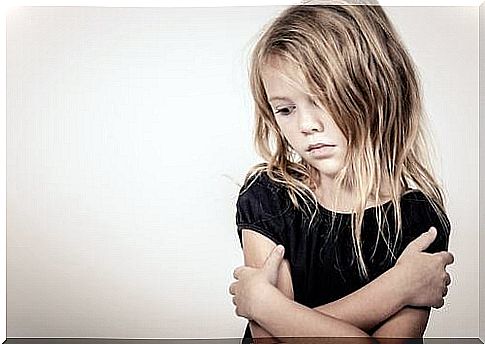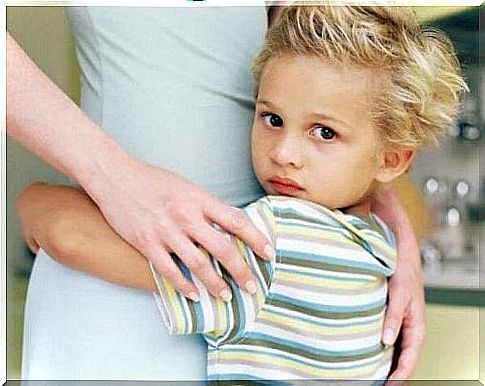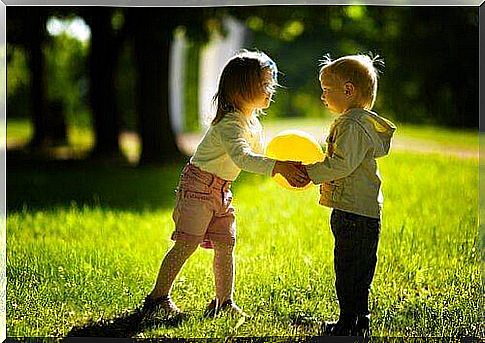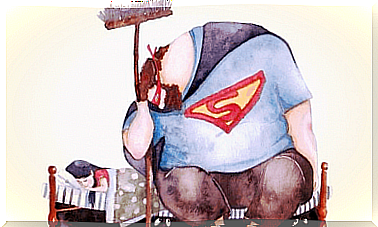Hyper Parenting: Overprotected Children And Stress

Hyperparenting is a new and increasing trend that neglects important aspects of childhood. Think of playing, being outside, boredom and confronting problems. It is the result of a parenting style characterized by excessive protection, excessive attention and praise for the child.
Children of hyperparents, also called hyperchildren, are more concerned with others than with themselves. They have little time for self-discovery, interpersonal development, and many other important traits they should develop in childhood.
What does the term “hyperparenting” mean?
Hyper parenting is a concept related to controlling children. As a result, these children behave much more mature than is normal for their age. They are expected to be perfect and this hinders their independence.
The terms hyperparenting and hyperchildren originated in the United States. Traditionally they are related to the concept of the ‘spoiled child’.
Eva Millet, journalist and author of the books Hiperpaternidad (Hyperparenting) and Hiperniños: hijos perfectos o hipohijos? (Hyperchildren: perfect children) states, however, that hyperchildren often cause their parents a lot of stress precisely because they do not want to raise spoiled children.
What is the life of hyperchildren like?
Hyperchildren are busy with extracurricular activities that they are not passionate about. They know very well what their weaknesses are, but their parents treat them like an investment.
That is, after putting a lot of money and effort into raising their children, they think (often unconsciously) that this will translate into automatic success.
The children are much more aware of this than we think. And that pressure affects them at every level. Their lives are characterized by constant stress as they have to live up to the expectations of others.
At the same time, hyperchildren are increasingly becoming the center of attention within the family. As Millet says, “You go to visit them and you don’t see any pictures of the grandparents. You only see pictures of the children, the kings and queens of the house.
In the past people had on average much more children than now, so that the attention had to be divided among the children. Once children were part of the furniture, today they are altars.”
This overstimulation creates the feeling in children that they are better than others, which can negatively affect their personal development.
As a result, they cannot manage their emotions well, easily get frustrated and suffer from their parents’ concerns. In short, they turn into what Millet calls “hyperkids,” dependent children who can’t do anything without the help of their parents.

But what does a child need?
It is difficult to determine exactly what children need, after all they have their own dreams, desires and expectations. One thing is clear though: they are still learning how to confront the real world, so we can’t ask as much of them as we would of an adult.
That is why as parents we should never live our lives through our children. It’s simply not up to them to make our dreams come true. Thinking about their academic career before they reach the age of ten is just weird.
We must let our children develop their own personalities and interests. And more importantly, we must give them the space to fail and discover where their limits lie. We need to teach them that failures can help them get better.

Less money, more love
Of course we want the best for our children. We want them to go to the best school, have the best teachers, and have the best extracurricular activities. And yes, all those experiences, classes and camps are very expensive. Still , we can’t expect our kids to understand this, because they just don’t.
They do not yet understand the value of money and therefore also not how much we invest as parents. Rather than worrying about your 10-year-old child not having the best English teacher in the country, it’s a much better idea to teach your child how to relate to their environment in a natural way.
After all, children have to grow up playing with other children. This means that they must practice their skills independently of each other. And as parents, we shouldn’t want to do everything for our children. Of course we should be there for our child when he or she needs our help, but we should not impose ourselves.
It is important that children learn how to overcome unexpected situations. Parents should only be there to give advice, support and most importantly lots of love.









